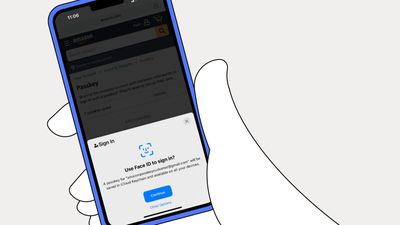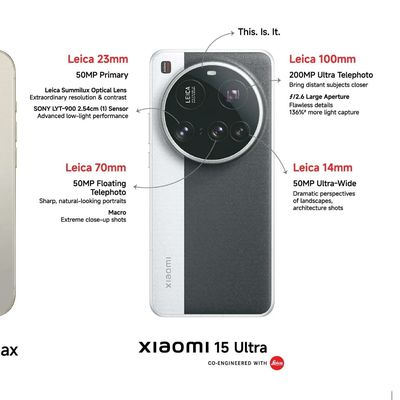Amazon Adds Support for Passkeys, Allowing for More Secure Logins
Amazon today announced that it has added passkey support to its desktop sites and mobile apps, allowing customers to sign in to their accounts without the need for a password.

Passkeys are a more secure alternative to passwords because a passkey cannot be shared with another person through a phishing attempt or leaked online through a database hack. Passkeys do not require customers to remember a password or add a two-factor authentication code, but they do require a verified device.
Passkeys can be set up in the Amazon settings, and on an iPhone, iPad, or Mac, logging in to an Amazon account can be done with a Face ID or Touch ID scan once the feature is turned on. To enable it, go to Your Account > Login and Security, and choose the Set up option next to Passkeys.
Apple implemented support for passkeys with iOS 16 and macOS Ventura. Passkeys work through a public key that's stored on a website server and paired with a private key that's kept on a specific device. On Apple's devices, passkeys are authenticated with Face ID or Touch ID, and two keys must match to allow for a user to log in.
Passkeys rely on iCloud Keychain, which in turn requires two-factor authentication for further protection. Passkeys sync across all of a user's iPhone, iPad, and Mac devices, but they can also be used on non-Apple devices through a QR code system.
Amazon says that passkey support is available today for all Amazon customers using browsers, and that it will be rolling out to the Amazon app for iOS devices in the near future.
Popular Stories
An iPhone 17 announcement is a dead cert for September 2025 – Apple has already sent out invites for an "Awe dropping" event on Tuesday, September 9 at the Apple Park campus in Cupertino, California. The timing follows Apple's trend of introducing new iPhone models annually in the fall.
At the event, Apple is expected to unveil its new-generation iPhone 17, an all-new ultra-thin iPhone 17...
Apple and Samsung have reportedly issued cease-and-desist notices to Xiaomi in India for an ad campaign that directly compares the rivals' devices to Xiaomi's products. The two companies have threatened the Chinese vendor with legal action, calling the ads "disparaging."
Ads have appeared in local print media and on social media that take pot shots at the competitors' premium offerings. One...
Apple is expected to unveil the iPhone 17 series on Tuesday, September 9, and last-minute rumors about the devices continue to surface.
The latest info comes from a leaker known as Majin Bu, who has shared alleged images of Apple's Clear Case for the iPhone 17 Pro and Pro Max, or at least replicas.
Image Credit: @MajinBuOfficial
The images show three alleged changes compared to Apple's iP...
Following the announcement of Apple's upcoming "Awe dropping" event, on this week's episode of The MacRumors Show we talk through all of the new accessories rumored to debut alongside the iPhone 17 lineup.
Subscribe to The MacRumors Show YouTube channel for more videos
We take a closer look at Apple's invite for "Awe dropping;" the design could hint at the iPhone 17's new thermal system with ...



















